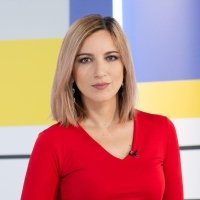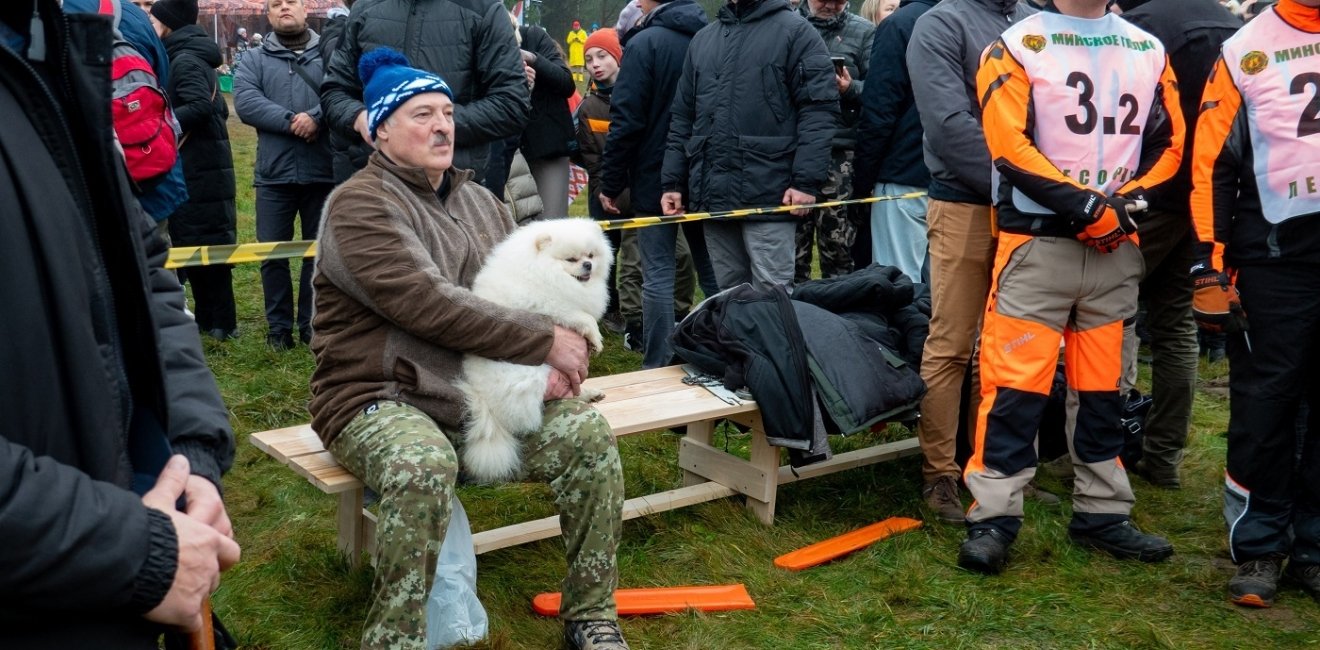
A blog of the Kennan Institute
These days, Vladimir Putin can watch how fragile and fleeting authoritarian power is. He sees Turkey and Belarus on the brink of existential change. An election, in the first case, and illness, in the second, may bring down powerful bosses. And it does not matter if this comes now or happens later. This should give the Russian autocrat pause. He has already imprisoned or expelled everyone who opposed him, but can he feel safe?
“Russia will respect the choice of the Turkish people,” said Dmitry Peskov, Putin’s press secretary. Moscow reacts to the political campaign in Turkey with restraint and limits itself to platitudes. In reality, the Kremlin does not consider it necessary to respect the will of any people, including its own. Recep Tayyip Erdogan, despite the fact that his interests may often diverge from those of Moscow, is a familiar actor to the Kremlin and, most importantly, he is anti-Western.
In September 2020, the Russian Foreign Ministry used similar wording about Belarus. “Moscow respects the choice of the people of Belarus,” Maria Zakharova, the ministry’s spokesperson, said. That sounded cynical, given that the Belarusian authorities conjured an unrealistic 80 percent win for Aleksandr Lukashenko in the face of mass protests. Then, just like today, the Kremlin played the side of its friend: familiar and anti-Western.
In two weeks, Erdogan faces an unpredictable second-round runoff against an opposition candidate. Lukashenko apparently suffers from some health issues. This does not mean that the Kremlin’s longtime partners will disappear from the political arena tomorrow. But this means that Putin is nervous.
The Russian leadership does not like to see an autocrat fall, for three reasons. First, for the Kremlin autocrat, it is easier to deal with other autocrats than with accountable leaders. An autocrat is flexible, tends to bargain, and can be bribed. And, of course, an autocrat does not need to worry about his voters or public interest in general. Second, many autocrats profess anti-Americanism. Third, an autocrat’s defeat is an omen: the iron fist might fail. This has not happened to Lukashenko or Erdogan, yet. But both have looked into the abyss.
When Lukashenko’s security forces beat and tortured Belarusians in a brutal crackdown on an unprecedented mass protest, Russia supported the dictator (I cannot call him president because his crudely rigged “election” deprived him of legitimacy). While Western leaders stopped talking to Lukashenko, Putin accepted his “win” and used it as an opportunity to bind Lukashenko to himself. By February 24, Lukashenko had no choice but to provide territory for Russia’s attack on Kyiv. No one asked the opinion of the Belarusians when the decision was made to deploy Russian nuclear weapons in their territory. This greatly increases the risk of receiving a retaliatory strike in the event of a radical escalation.
Putin may even succeed in pushing Lukashenko into providing troops for his invasion of Ukraine, a move that the Belarusian dictator has so far been able to avoid. This is a huge risk for Lukashenko, since it will be extremely difficult to sell to Belarusians on the idea of full-scale war under the pretext of defense against the West. But, of course, he will be left no choice. Lukashenko’s positions are weakening along with his health.
The press and analysts have been talking about the fact that his health is clearly bad since May 9. In Moscow, he could not walk a short distance on foot and used an electric car. He did not stay for Putin’s lunch. He did not make a speech upon his return to Minsk. And he missed the Day of the Flag, Emblem, and Anthem of Belarus. Nobody saw him in public for a week, starting with the parade in Moscow, where he appeared with a bandaged hand.
On May 16, a Telegram сhannel close to the Lukashenko administration published a photo and then a video of the boss. His hand was bandaged again, though it was the left one; the right one was bandaged at the Moscow parade. Most likely this means that a catheter is being changed. Overall, Lukashenko does not look good.
Russian State Duma member Konstantin Zatulin was the first to admit that Lukashenko was ill. In fact, no one knows what exactly is happening to him. After all, dictators do not seek to be accountable to voters. Therefore, in a completely natural way, the question of whether Lukashenko will die is at the center of a discussion. More precisely: what if Lukashenko dies?
There are two options. Either a Putin man is put in Lukashenko’s place, or a confrontation begins among elites on the inside. If that happens, the opposition in exile has a chance. It will need to quickly and effectively enter into negotiations. The office of Belarusian opposition leader Svetlana Tikhanovskaya is preparing its proposals.
I would presume that, among other things, opponents of the current regime would suggest softening Western sanctions. Tikhanovskaya will easily receive (if she has not yet received) a green light from the European Union. After Lukashenko, political prisoners could be released, opponents of the regime might be able to return to the country, and elections, ideally, could be scheduled.
Is such a development imaginable? Absolutely. The only problem is that, unlike Lukashenko, Putin has no visible difficulties with his health. And with a high degree of probability, if Lukashenko disappears, big brother from Russia will take control of the situation in Minsk in a matter of seconds. Changes in Belarus will inevitably follow changes in Russia.
Putin’s main nightmare is a Maidan. The leaders who came to power on the wave of mass protest—especially in the countries of the former USSR—are absolutely rejected by the Kremlin, because they are seen as a threat and can serve as an example. This is why Putin did not find common ground with either the former president of Georgia, Mikheil Saakashvili, or with the current Armenian prime minister, Nikol Pashinyan, who both gained power as a result of the so-called “color revolutions.”
There are no revolutions in Turkey so far, just competitive elections, which causes bewilderment in the Kremlin. The leader of the Turkish opposition is not trusted there. A couple of days before the vote, Kemal Kılıçdaroglu said that Russia was trying to interfere with the political process in Turkey by publishing fake news and spreading disinformation on social networks. Russia was immediately indignant and denied everything, just like it did during and after the 2016 U.S. elections. However, even more interesting is the fact that the opposition candidate for the presidency of Turkey promises, in case of victory, to reorient Ankara’s foreign policy, strengthen the alliance with the West, and join the sanctions against Russia.
The second round of elections in Turkey will take place on May 28. It is not at all sure that Kılıçdaroğlu will win. On the contrary, experts tend to predict his defeat, unless, of course, something happens that radically changes the mood. And if Erdogan remains in power, according to experts, repressions inside the country will intensify. This will be justified, as usual, as in the interest of national security. However, many politicians in the West are holding their fists, allowing themselves to hope.
I just returned from the Tallinn Lennart Meri conference where there were a record number of VIP guests from all over the world, mostly NATO member states. And there, almost every discussion, in one way or another, was about Turkey. What if Erdogan was gone? It would change a lot.
Lukashenko and Erdogan are both cunning and experienced actors. The final argument inside a country is always strength. In the authoritarian world, the one with the strongest grip wins. But any grip may weaken, and then the system crumbles quickly. Last week has shown that there may be some chance of this happening.
The opinions expressed in this article are those solely of the author and do not reflect the views of the Kennan Institute.
Author


Kennan Institute
After more than 50 years as a vital part of the Wilson Center legacy, the Kennan Institute has become an independent think tank. You can find the current website for the Kennan Institute at kennaninstitute.org. Please look for future announcements about partnership activities between the Wilson Center and the Kennan Institute at Wilson Center Press Room. The Wilson Center is proud of its historic connection to the Kennan Institute and looks forward to supporting its activities as an independent center of knowledge. The Kennan Institute is committed to improving American understanding of Russia, Ukraine, Central Asia, the South Caucasus, and the surrounding region through research and exchange. Read more

Explore More in The Russia File
Browse The Russia File
Chechnya as a Model of Modern Russia

Russia’s Indigenous Communities and the War in Ukraine

Gas and Power in a Changing US–Russia Relationship

